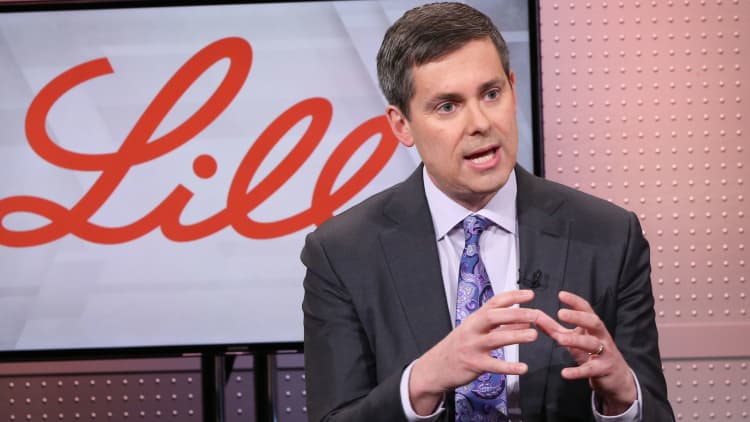The U.S. government will pay Eli Lilly $375 million to supply 300,00 doses of its experimental antibody drug to treat the coronavirus, the company announced Wednesday.
The agreement is for delivery over the two months following an emergency use authorization from the Food and Drug Administration. The deal also provides the option for the U.S. government to purchase 650,000 more doses through June 30, the company said.
"Lilly has leveraged our deep scientific capability to fight this pandemic and we are proud of our efforts to develop potential medicines to combat COVID-19," Eli Lilly's CEO David Ricks said in a statement.

In October, the company submitted a request to the FDA for emergency authorization of its drug for people with mild to moderate Covid-19. If authorization is granted, the U.S. government has committed that patients will have no out-of-pocket costs for the medicine, although health-care facilities may charge a fee for the product's administration, the company said.
Lilly said it anticipates manufacturing up to 1 million doses of its drug by the end of 2020, with 100,000 doses ready to ship within days of authorization.
The agreement with the U.S. came days after the company said a trial of the drug failed to show a benefit in hospitalized patients. The company said it is confident the drug is helpful to those earlier in the course of Covid-19.
Eli Lilly's drug is part of a class of treatments known as monoclonal antibodies, which are made to act as immune cells that scientists hope can fight the virus. Other companies including Regeneron are also working on antibody treatments.
President Donald Trump has touted Eli Lilly's treatment and others. When he was sick with Covid-19, one of the treatments he received was Regeneron's antibody drug. In an Oct. 7 video on Twitter, he claimed it was "a cure."
However, while early data shows antibody drugs are indeed promising, medical experts say it's far from a cure as trials are still needed to determine how well it works.


